Repatriation
The Alutiiq Museum assists the ten federally recognized tribes of the Kodiak Archipelago with the repatriation of ancestral remains, funerary objects, sacred objects, and objects of cultural patrimony under the Native American Graves Protection and Repatriation Act (NAGPRA) and the National Museum of the American Indian Act (NMAIA). The museum also works with collecting institutions on ethical returns and deaccessions that fall beyond the limits of repatriation law. Curator of Collections Amanda Lancaster, 844-425-8844, is our repatriation coordinator.
Tribal Partners
To support our tribal partners, we compile information on Alutiiq materials in collecting institutions around the world, assist with repatriation claims, and facilitate the return of repatriated items and ancestral remains.
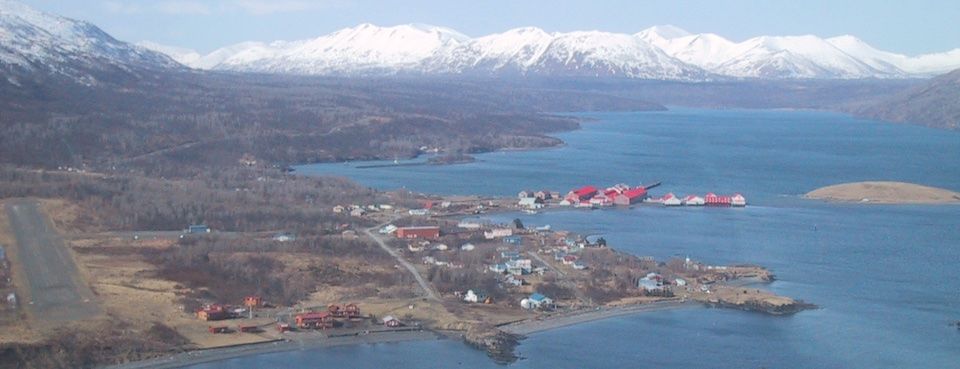
Larsen Bay, Alaska. Photo by Sven Haakanson Jr.
-
Alutiiq Tribe of Old Harbor
-
Kaguyak Village
-
Native Village of Afognak
-
Native Village of Akhiok
-
Native Village of Karluk
-
Native Village of Larsen Bay
-
Native Village of Ouzinkie
-
Native Village of Port Lions
-
Sun’aq Tribe of Kodiak
-
Tangirnaq Native Village
Repatriation Database
This private, searchable database allows tribal governments to view records of ancestral remains and funerary objects repatriated to Alutiiq tribes and to learn of remains and objects available for repatriation. The database is available to the staff and council members of Kodiak Alutiiq tribes. Please contact Amanda Lancaster for assistance. Produced with support from the National Park Service NAGPRA program.
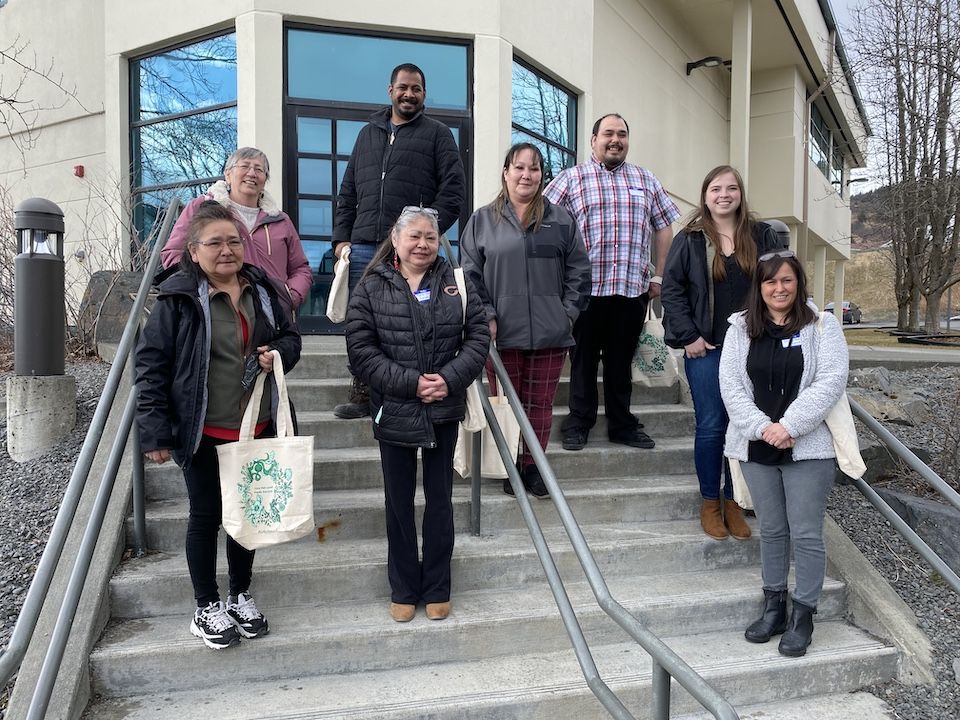
Commission members assembled at the museum, April 2022.
Repatriation Commission
Formed in 2007, the Kodiak Alutiiq/Sugpiaq Repatriation (KASRC) includes representatives of Kodiak’s ten federally recognized tribes. The commission advances repatriation projects throughout the Kodiak region. Their work is governed by the commission’s manual and facilitated by the Alutiiq Museum following priorities set by tribal representatives.
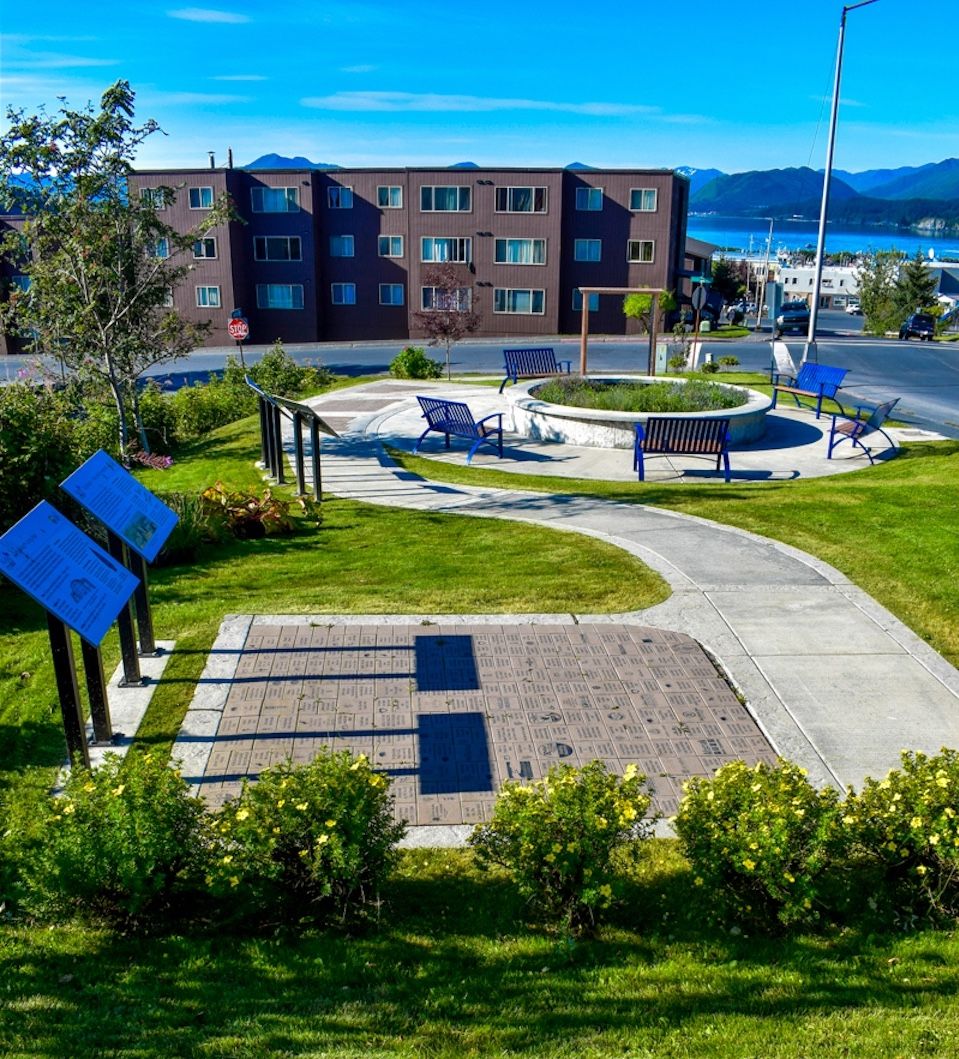
The Alutiiq Ancestors’ Memorial in downtown Kodiak.
Alutiiq Ancestors’ Memorial
This city park adjacent to the Alutiiq Museum honors the Alutiiq people. It introduces visitors to Alutiiq history, discusses repatriation, and offers a quiet space for all people to remember their ancestors. Every Alutiiq ancestor repatriated to Kodiak is memorialized with a metal fish attached to the park archway. There are over 1240 fish on the archway.
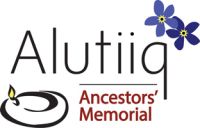
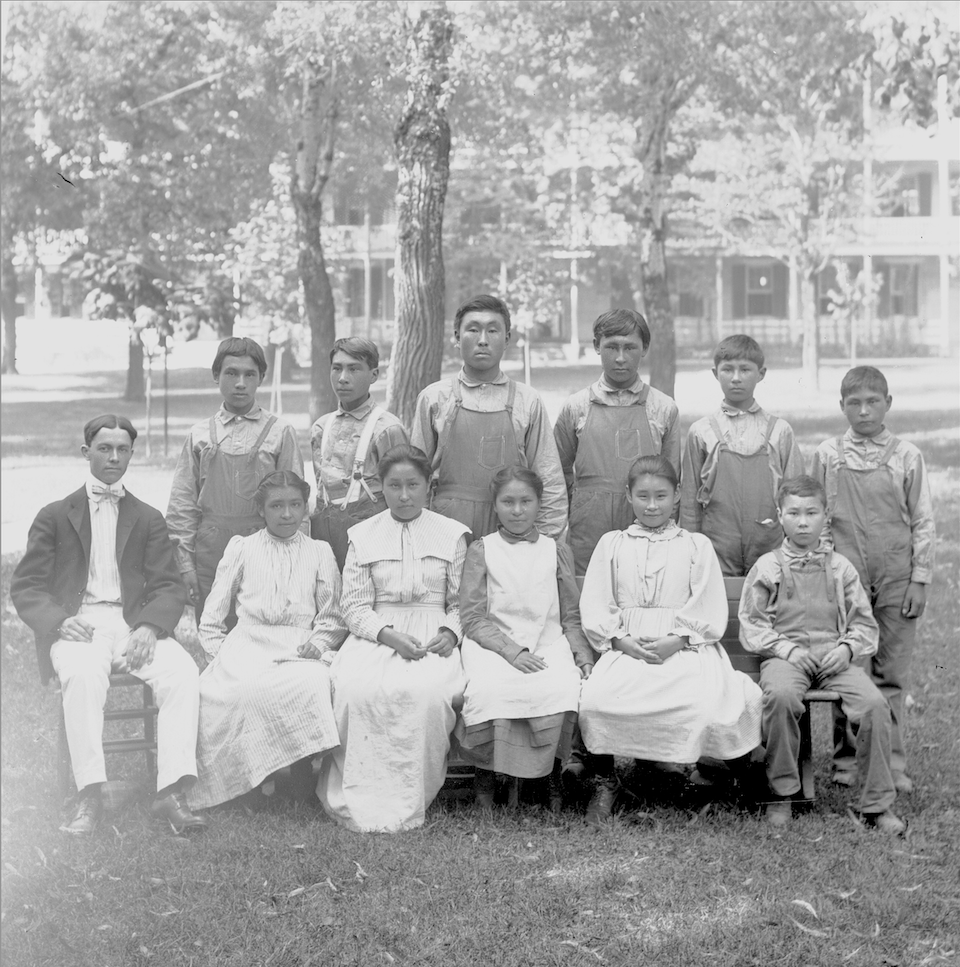
Students from Kodiak and Woody Island on their arrival at the Carlisle Indian Industrial School, Pennsylvania, June 1901. Back row from left–John Lolchesnekoff (16), Theodore Shellikof (15), Nekifer Shouhchuk (22), Micheal Chabitnoy (15), Geo Galatkinoff (14), Sashka Alexander (13); Front row from left–Charles Bunnell, Orleana Yakoff (14), Kate Shepard (16), Anastasia Ashouwak (13), Pariscovia Apaiukak (14), Peter Debrovolsky (12). Courtesy of the National Archives, NAA 73342.
Residential Schools Repatriation
In the late 19th and early 20th centuries, tens of thousands of Native children were taken from their families and communities in a federal effort to strip Indigenous children of their Nativeness through education. There were more than 400 residential schools across the country. The conditions at these schools were dreadful. Children suffered hunger, forced labor, punishment, disease, and denigration. Many died and their bodies were never returned to their families.
Across the country, tribal and government representatives are now working to find graves, identify student remains, and return lost children to their communities. The Alutiiq Museum is facilitating this process in Kodiak with support from the Sun’aq Tribe, the US Bureau of Indian Affairs, the Russian Orthodox Church, and many others.
Repatriation and the Alutiiq Museum’s Collections
The Alutiiq Museum follows all laws that govern the stewardship of collections, including the Native American Graves Protection and Repatriation Act. This includes repatriating human remains, funerary objects, sacred objects, and objects of cultural patrimony cared for in our repository. To govern this work, the museum’s Board of Directors adopted a repatriation policy. Please contact Curator of Collections Amanda Lancaster, 844-425-8844, with questions about the collections in the museum’s care.
